Selma presents an unusual situation in that it’s a good — sometimes very good — film that never quite achieves greatness, but which is an important work, important enough to qualify as a must-see. I often complain about movies being given some kind of free pass because of the importance of the subject being confused with the importance of the film itself. But that’s not quite the case here. What makes the film — for any of its shortcomings — such a vital work is how relevant its depiction of the events of 50 years ago are to today. It is impossible to watch Selma and not see the parallels to current events like Ferguson, Mo., and, especially, voting rights . That, of course, is going to be why the film will displease some viewers, too — and I suspect why Paramount made it the hardest award season heavy-contender to see.
The recent controversy over whether or not Selma lionizes Martin Luther King at the expense of LBJ may not have helped matters, but so much of this has turned into a battle over “truths” that depend on whose account you believe that it just seems a little on the irrelevant side. Truthfully, some of what is being argued involves conversations between King and LBJ where the movie is filling in things no one else could know. Other bits involve a certain amount of guesswork, too, but really what historical drama doesn’t? Anyone who goes to a movie expecting a history lesson is foolish. Then again, there are so very many alternate versions of “historical fact” these days, I’m not sure there is an authoritative version. The funny thing to me is — accurate or not — the film paints a fairly sympathetic picture of LBJ as a pragmatic, but basically decent and progressive man.
Selma is not a biopic. Rather, it presents a little slice of time — three months — in the story of the civil rights movement, focusing on a single event, the Selma to Montgomery March in 1965, the year after the passage of the Civil Rights Act of 1964. There are no attempts to sketch in a backstory for King (David Oyelowo). We don’t get any cheesy childhood flashbacks offering “psychological” evidence of how MLK became MLK. (Yes, I am looking at you, American Sniper.) Ava DuVernay’s film simply presents the drama of the events of those months — well, at least till we hit the unfortunately inevitable series of title cards tying things together at the end. It’s a bold idea that — as someone noted — makes you understand the concentrated power of a self-contained movie over the TV approach of a mini-series. Selma has an immediacy and urgency
The film’s approach is also a tricky one, since it assumes the viewer has some basic knowledge of who the major players are. This is probably a safe enough approach as concerns King, LBJ (Tom Wilkinson), Coretta Scott King (Carmen Ejogo), George Wallace (Tim Roth), Malcolm X (Nigel Thatch) and J. Edgar Hoover (Dylan Baker). (I realize I may be overly optimistic here.) But when it gets to historical persons like Ralph Abernathy (Colman Domingo), James Bevel (Common), Bayard Rustin (Ruben Santiago-Hudson), and Andrew Young (Andre Holland), it’s probably another matter. Whether this is a genuine cause for concern regarding the film’s impact, I don’t know, but it’s worth noting. (The audience I saw the film with were mostly old enough to have lived through the events, at least as children .)
As filmmaking Selma is something of a mixed bag. Sometimes — enough times to matter — it is very fine, if rarely flashy. The explosion that ignites the situation in Selma is truly shocking. The scenes on the Edmund Pettus Bridge are truly dynamic — and almost as if DuVernay realizes she can’t top them so she doesn’t try. Most of the time she’s content to carefully frame her shots and let her actors hold the screen and this mostly works, especially when Oyelowo or Wilkinson are on the screen. The showdown between LBJ and George Wallace is especially strong. That said, there are a number of low-light scenes that just look muddy and underexposed. And, there’s the Oprah factor. I have nothing against her and I think she’s a good actress — her scene at the beginning is terrific — but her appearance in any film can be distracting, and that sometimes is the case here. Still, all in all, Selma is a very worthy film — and certainly worth your time. Rated PG-13 for disturbing thematic material including violence, a suggestive moment, and brief strong language.



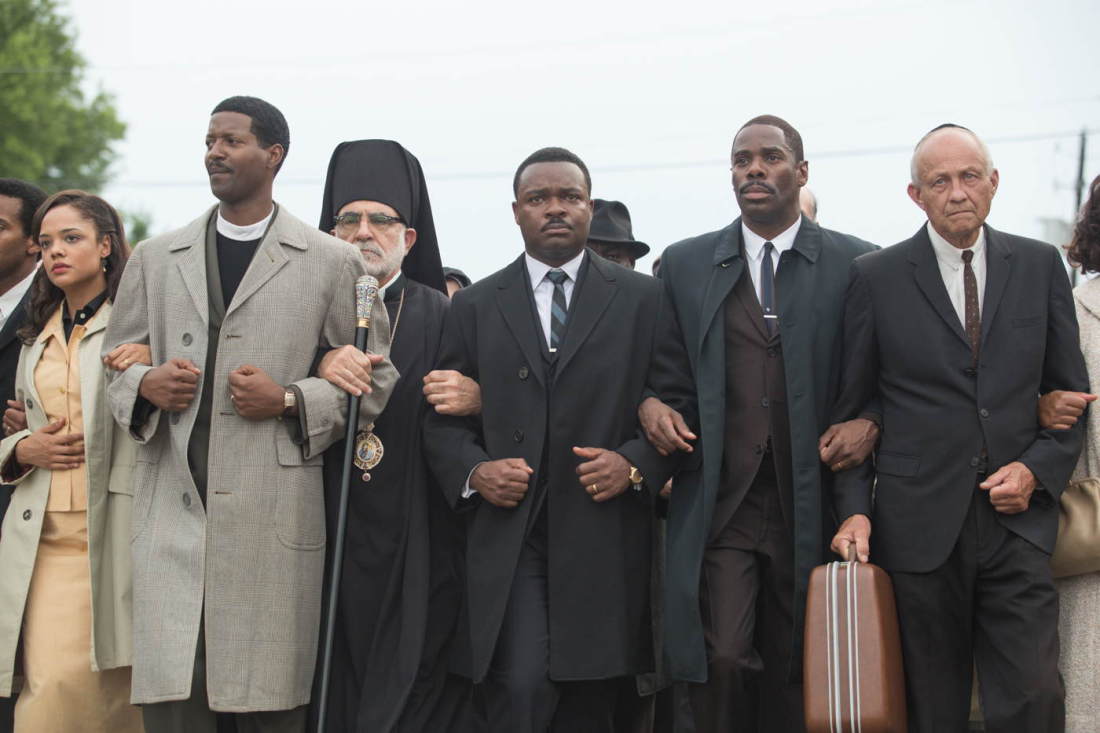
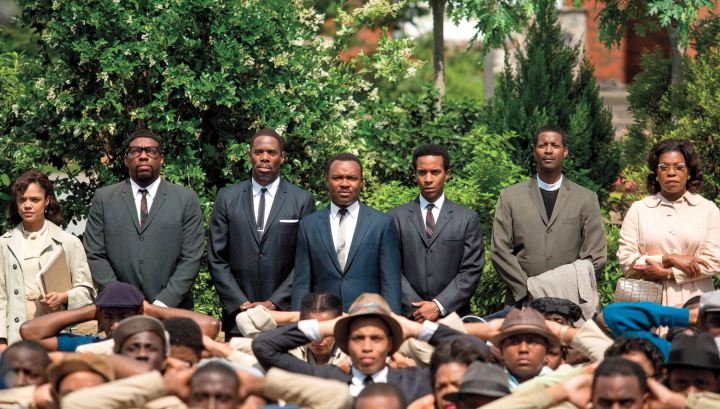
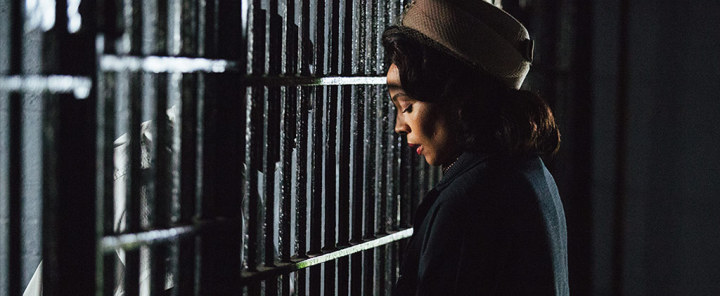
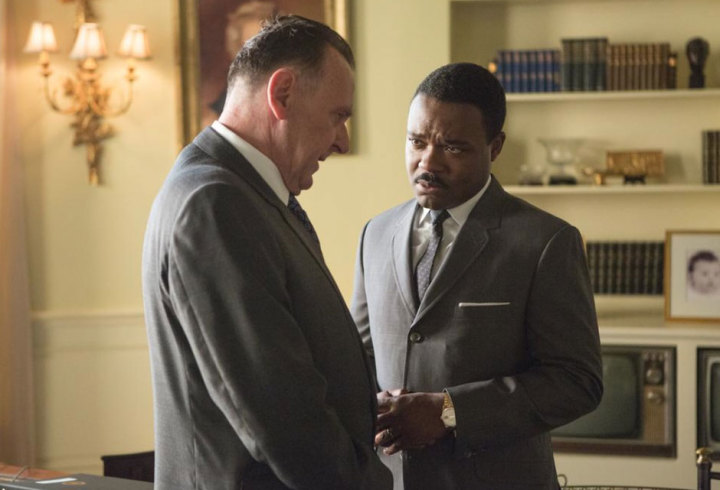
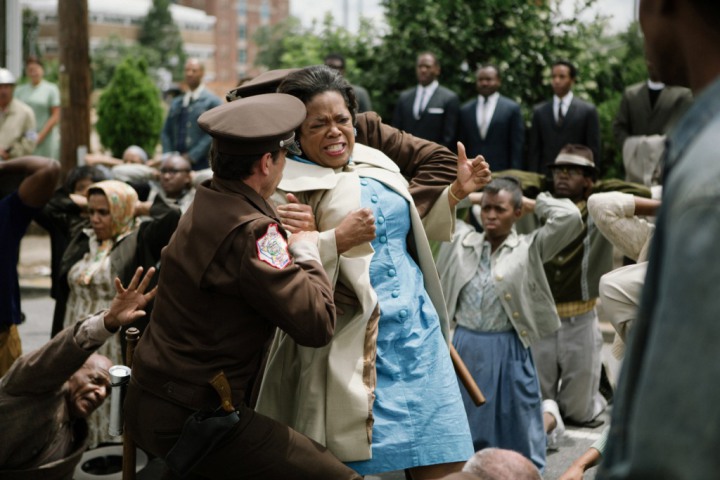
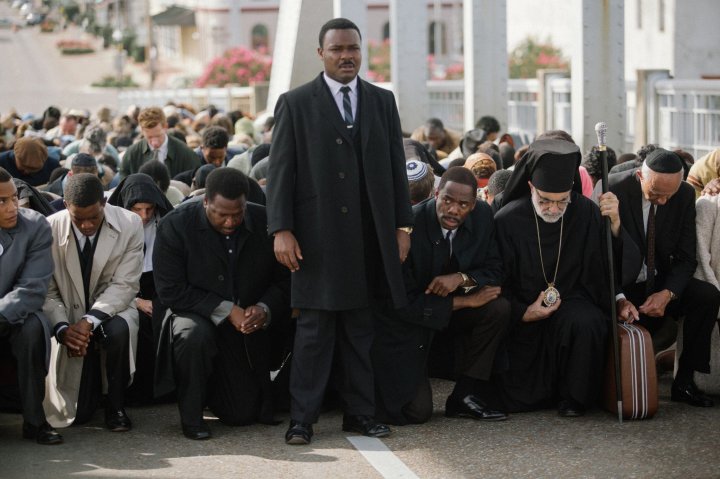
So, I take it no one has seen this?
So it would seem, but…
I’ve read most of the reviews on Rotten Tomatoes, and most sum-up (more or less) with the same plaintive refrain:
“More relevant today than ever…”
As a Republican voter since 1971, I tend to agree, but not for the same reasons as most who are peddling that message. Racism and bigotry are more virulent today than ever in my lifetime. And it’s coming almost exclusively from Democrats, the President, liberals and professional Leftists. Anytime I post a comment on-line critical of President Obama, I can expect to see at least a half-dozen posts calling me a racist or a moron. I see African American members of Congress ridiculed and denigrated because they are either members of the Republican party, or just generally considered ‘conservative’.
In 2012, it was considered ‘politically correct’ (if not ‘advantageous’) to make disparaging references to the Mormon faith, because Mitt Romney was guilty of being both a Republican, and member of a religion which for no known reason, has been deemed eligible for disdain by the liberal ‘community’. There was even a satirical hit on Broadway built on the premise that there was a lot to mock in the Book of Mormon.
And this last year (the year that is supposedly so timely with respect to the film ‘Selma’), we had violent race-riots in the streets of several of our cities, expressing outrage that two African Americans, one of whom had just committed a felony caught on a security video, ended up dead when in each case, they resisted arrest by police. Even after two grand-juries, and the DOJ determined that racism played no part in these incidents, the outrage continued. In Ferguson, Missouri, the media, and racists in the roving bands of so-called protesters whipped up a lynch-mob mentality, all based on what turned out to be false allegations against a white police officer, who, when the facts finally came out, had been assaulted and almost killed when the suspect he was trying to detain, attempted to disarm him, and use his gun against the officer.
Niether was there a shred of evidence of racism in New York City, where another African American died after resisting arrest. In fact, the officer-in-charge in that incident was an African American woman. But when the New York City mob took to the streets, African Americans were seen on national TV carrying placards and chanting: “What do we want? Dead Cops”.
And in just a few short days after that “civil-rights rally”, they got their wish: two NYPD cops shot from behind while eating lunch in their squad car, by an African American who bragged about his intention to “kill two of them for every one of ours” on his Facebook page.
So I guess it’s true. The movie Selma is relevant today, because once again, we have millions of Americans who blindly hate a certain minority of their fellow citizens, partly due to the color of their skin, and their own self-serving assertion that this particular minority (white Republicans and/or conservative African Americans for the most part) don’t qualify for the same respect and civil-liberties as they (you) do.
I don’t need to go see the movie Selma — I watched it all first-hand back then while it was taking place. I recognized racist hatred when I saw it back then, and I recognize it again now. There was no excuse for it then, and there’s no excuse for it now. But there is one added insult to the racism and bigotry practiced by liberals and the Left today: unforgivable hypocrisy.
BTW: This Republican voted for Senator Obama in 2008, because I took him at his word that he would try to do the things he said he would do as a candidate, if we elected him to this country’s highest office. We did. He didn’t.
Yes, well…